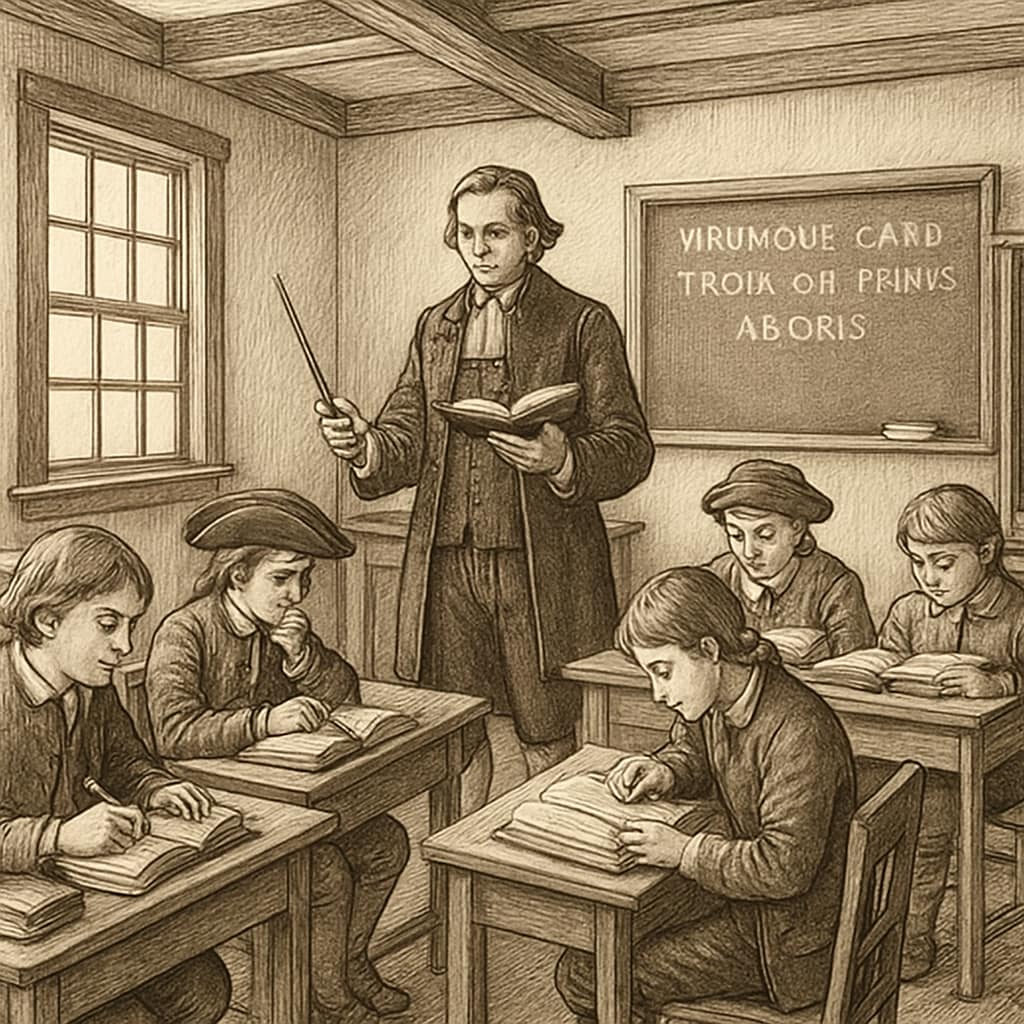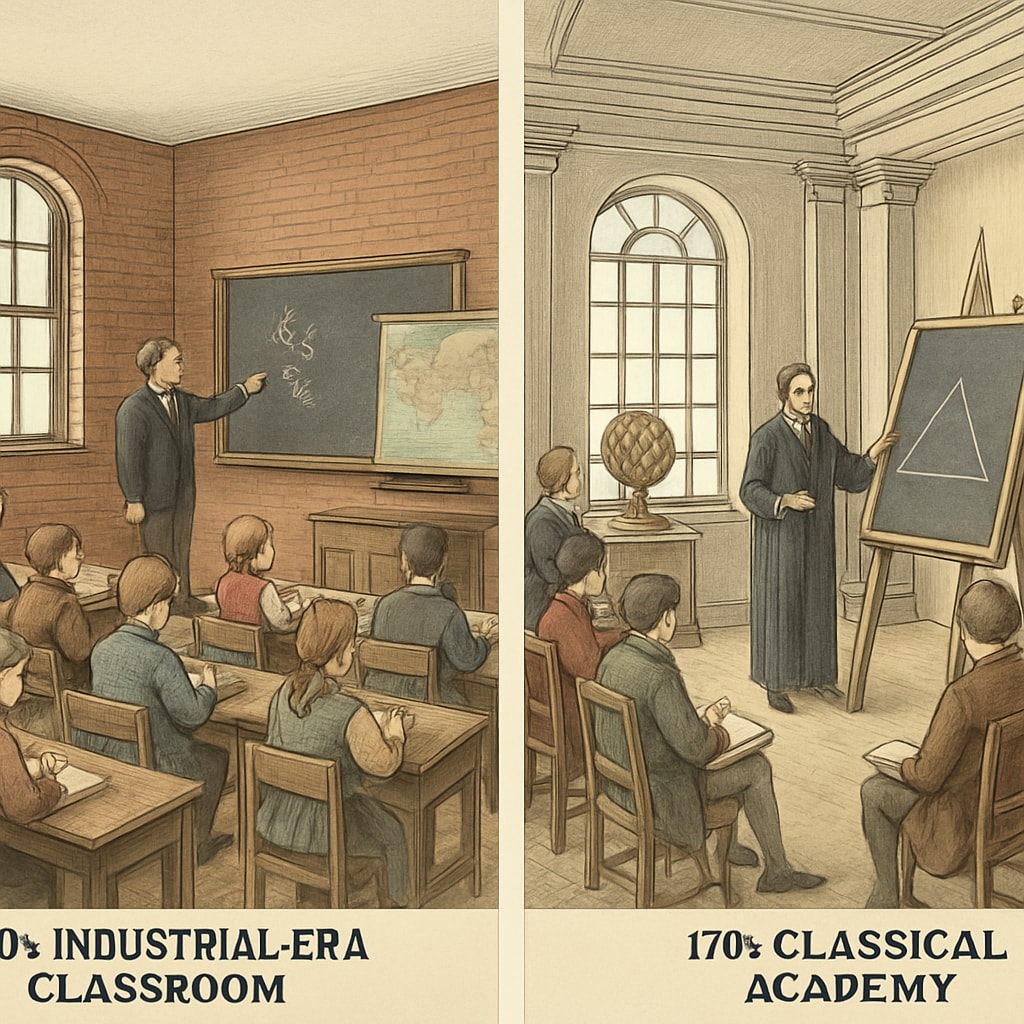The trajectory of classical education, historical shifts, and the Founding Fathers reveals a profound transformation in American pedagogy. Once the cornerstone of elite instruction during the colonial era, this tradition emphasizing Greek, Latin, and moral philosophy gradually yielded to industrialized schooling models.

The Golden Age of Classical Learning
Before the 19th century, classical education formed the intellectual backbone of American leadership:
- Founding Fathers’ training: Figures like Jefferson and Adams mastered Greek rhetoric and Roman law (Classical education movement)
- Trivium framework: Grammar, logic, and rhetoric formed the foundation of critical thinking
- Moral cultivation: Classical texts served as vehicles for character development
Industrialization’s Impact on Pedagogy
The 19th century brought seismic changes that marginalized traditional approaches:
- Workforce demands: Factories required practical skills over philosophical debate
- Standardized testing: Quantifiable outcomes replaced Socratic dialogue (Education historical background)
- Urbanization: Mass schooling prioritized efficiency over individual cultivation

Modern Echoes of Classical Wisdom
Contemporary educators increasingly recognize enduring values from this tradition:
- Liberal arts revival: Universities reintroduce Great Books programs
- Critical thinking emphasis: The trivium model informs new pedagogical approaches
- Character education: Modern schools revisit classical virtue ethics
As education evolves, the dialogue between tradition and innovation continues. The classical emphasis on moral reasoning and disciplined thought offers valuable correctives to contemporary pedagogical challenges.


